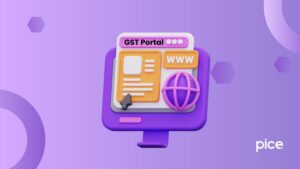Travel Agent and Tour Operator Services: Composition scheme under GST
- 20 Sep 24
- 9 mins

Travel Agent and Tour Operator Services: Composition scheme under GST
Key Takeaways
- Travel agents and tour operators play a crucial intermediary role in the tourism industry, offering personalized travel solutions and packages.
- GST applies uniformly to travel agents and tour operators across India, with a standard rate of 18% on the services they provide.
- Special GST considerations exist for air travel agents, with options for commission-based or fixed percentage GST calculations.
- The SAC code for travel agency and tour operator services is 9985, essential for categorizing services correctly under GST.
- Tour operators and travel agents must register for GST if their annual turnover exceeds Rs. 20 lakhs (Rs. 10 lakhs for special category states), ensuring compliance and enabling them to claim Input Tax Credit.
Defining the Role of a Travel Agent
A travel agent serves as a crucial intermediary in the tourism industry, connecting customers with various travel-related services. These professionals specialize in offering comprehensive travel solutions, including but not limited to booking flights, hotels, and vacation packages, as well as providing expert advice on destinations, travel insurance, and visa requirements. Their expertise lies in tailoring travel experiences to individual preferences and budgets, ensuring clients have seamless and enjoyable trips. In essence, travel agents simplify the complex web of travel planning, leveraging their knowledge and networks to enhance the overall travel experience for their clients.
Who is a Tour Operator?

A tour operator is a professional or company that designs, arranges, and markets travel packages for individuals or groups. These packages typically include a combination of transportation, accommodations, meals, guided tours, and other travel services, bundled together for convenience and cost savings.
Tour operators possess in-depth knowledge of the destinations they serve, leveraging this expertise to create itineraries that offer travelers unique and enriching experiences. They negotiate with service providers like hotels, airlines, and local guides to secure the best possible rates, ensuring their packages are attractive and competitive.
Business Model - Tour Operator
The business model of a tour operator revolves around the creation and sale of comprehensive travel packages that cater to the needs and preferences of travelers. Key components of this model include:
- Product Development: Crafting unique travel packages by selecting destinations, curating experiences, and bundling various services like transportation, accommodation, and activities.
- Supplier Negotiations: Establishing relationships with service providers to secure favorable rates and terms, which are crucial for competitive pricing and maintaining profit margins.
- Marketing and Sales: Utilizing multiple channels, including online platforms, travel expos, and travel agencies, to promote and sell travel packages to the target audience.
- Customer Service: Providing exceptional pre-trip, during-trip, and post-trip support to ensure customer satisfaction and foster repeat business.
- Operational Logistics: Coordinating all aspects of the travel package efficiently, ensuring smooth operations and high-quality experiences for travelers.
This model emphasizes the tour operator's role as a curator of travel experiences, focusing on value creation for both travelers and the business through strategic planning, effective marketing, and excellent service delivery.
Applicable GST Rates for Travel Agents
The Goods and Services Tax (GST) applies uniformly to travel agents across India, encapsulating the diverse range of services they offer. As of the current tax regime, travel agent services attract a standard GST rate of 18%. This rate applies to the commission or fees earned by the agent for the services provided to their clients. It's important for travel agents to incorporate this tax rate into their pricing structures to maintain transparency with customers and ensure compliance with the national tax regulations. The uniform application of this GST rate seeks to standardize the taxation across the service industry, including travel and tourism services.
Understanding GST for Air Travel Agents
Air travel agents operate within a specialized niche of the travel industry, focusing on booking air tickets and offering related services to their clientele. The GST framework for air travel agents is tailored to accommodate the unique aspects of their service delivery. Specifically, GST for air travel agents can be calculated under two schemes: commission-based and fixed percentage basis.
Under the commission-based scheme, GST is levied on the commission or fees charged by the agent. Alternatively, a fixed percentage of the airline ticket fare can be subjected to GST, providing flexibility in tax calculation. This dual approach ensures that GST compliance is adaptable to the varied business models within the air travel agency sector.
GST Rates and Service Accounting Codes (SAC) for Travel Agency Services
Travel agency services, including those offered by tour operators and air travel agents, are categorized under specific Service Accounting Codes (SAC) in the GST regime. These SACs are instrumental in identifying the nature of services provided and ensuring the correct GST rates are applied. For travel agency services, the predominant SAC is 9985, which encompasses a broad range of travel-related services.
The standard GST rate applied to services falling under this SAC is 18%. This uniform rate simplifies the tax process for service providers in the travel industry, ensuring clarity and compliance. The application of SACs and corresponding GST rates are crucial for the accurate filing of tax returns, enabling travel agents to claim any eligible Input Tax Credits (ITC) and maintain financial efficiency in their operations.
Threshold Limit of GST Registration for Tour Operators and Travel Agents
The GST registration threshold for tour operators and travel agents is a critical financial marker that determines their tax responsibilities. Across most of India, tour operators and travel agents must register for GST if their annual turnover exceeds Rs. 20 lakhs. In special category states, which include the northeastern states, Himachal Pradesh, Uttarakhand, and Jammu & Kashmir, this threshold is reduced to Rs. 10 lakhs.
This mandate ensures that smaller businesses below this threshold are not burdened with the complexities of GST compliance, while larger businesses contribute their fair share to the tax system. Registration empowers these businesses to legally collect GST from their clients, offering them the potential benefit of claiming Input Tax Credit on their service-related expenses.
Chargeable Services of Travel Agents
Travel agents offer a myriad of services that are chargeable under the GST framework, reflecting the diverse needs of travelers today. These services encompass booking of transportation (air, land, and sea), accommodation reservations, package tours, visa processing services, and travel insurance arrangements.
Each of these services attracts a standard GST rate of 18%, ensuring uniformity in tax collection across the spectrum of services provided. The comprehensive nature of these chargeable services underlines the role of travel agents as essential facilitators in the travel and tourism sector, simplifying travel logistics for individuals and groups while navigating the implications of GST on their offerings.
💡If you want to pay you GST with Credit card, download Pice Business Payment App. Pice is the one stop app for all paying all your business expenses.
 By
By 

















